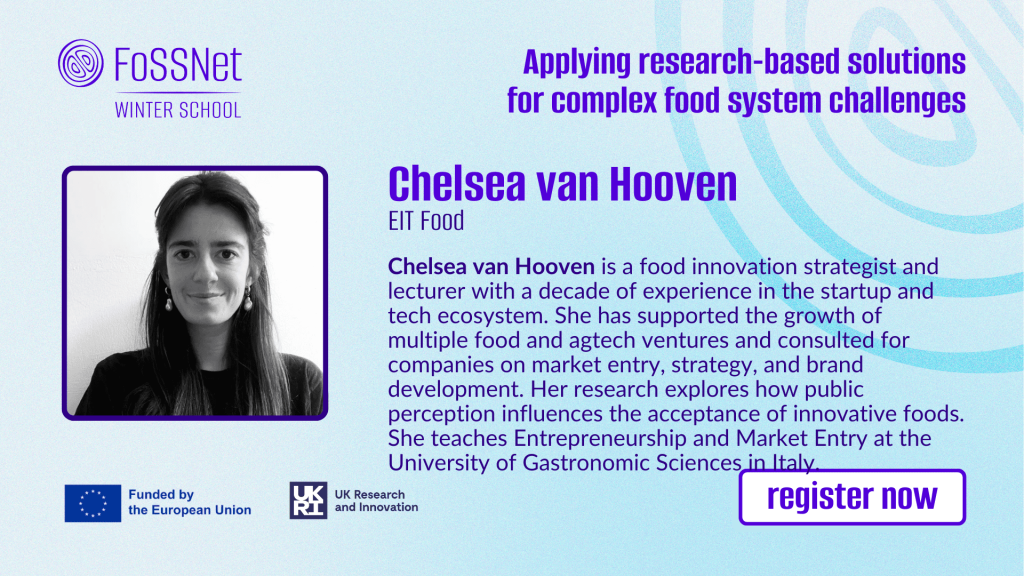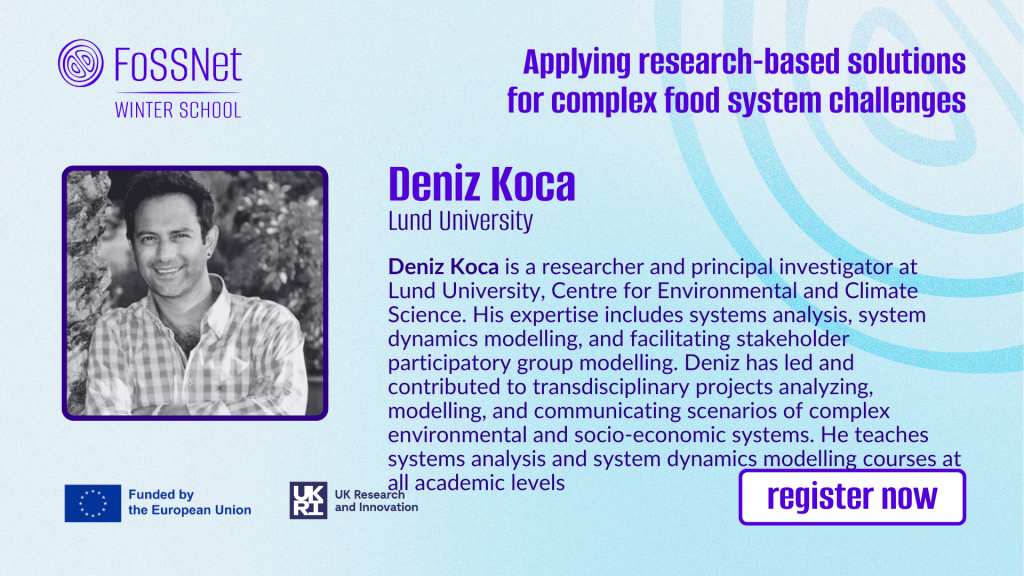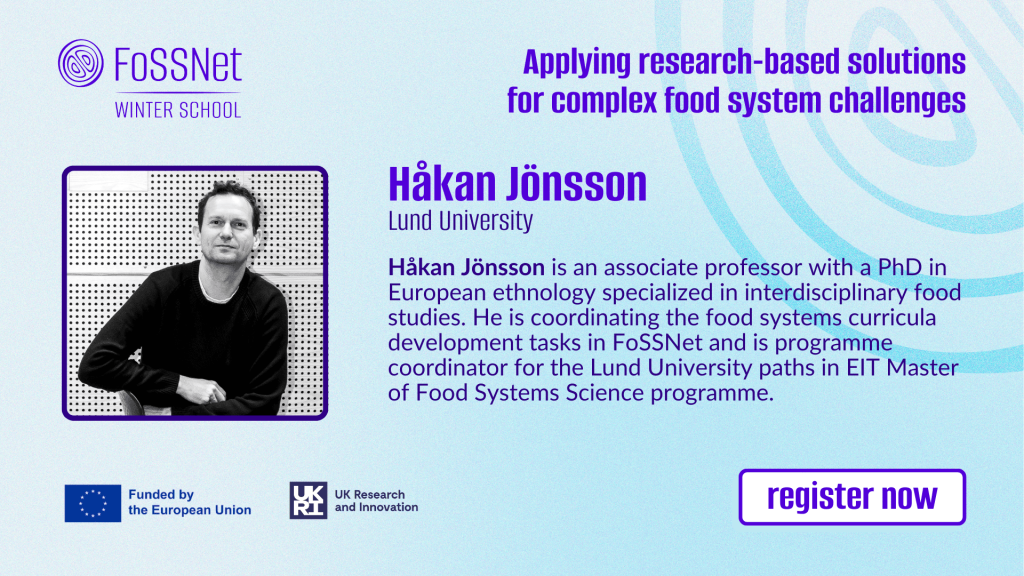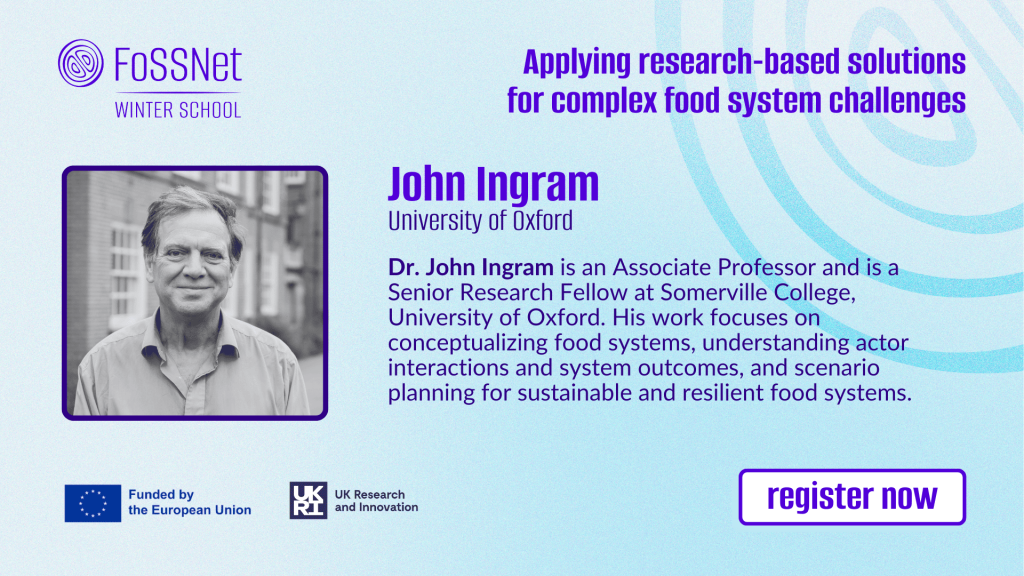FoSSNet Winter School 2026
The FoSSNet Winter School ”Applying research-based solutions for complex food system challenges” offers a collaborative learning experience for early-career researchers from academia, industry, and applied research turn their work into real-world solutions for today’s complex food system challenges.
Through collaboration across diverse perspectives, participants learn to apply systems and entrepreneurial approaches to interrogate evidence, co-design practical options, and translate insights directly into their own research practice.
The Winter School will take place online from 12 to 30 January 2026 (3 weeks), combining live sessions with asynchronous activities.
Submit your application here (closed)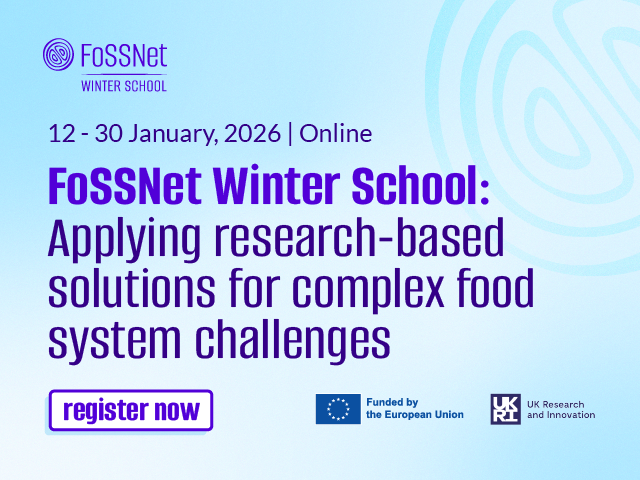
The Winter School will help you:
→ Move from research to application – identifying how your work contributes to change.
→ Gain systems-thinking literacy, learning to see problems as part of interconnected food systems.
→ Strengthen your impact and communication skills.
→ Join a European network of peers and mentors committed to sustainable food system transformation.
Who can apply:
• PhD candidates, postdocs, and R&D staff (with ≤7 years of experience)
• Individuals working on food systems topics in academia, research institutes, start-ups, public institutions or industry
• Individuals interested in applying systems and entrepreneurial methods to real-world challenges
Industrial doctorates and other practice-oriented researchers are especially encouraged to apply.
Learning objectives
By the end of the Winter School, participants will be able to:
1. Analyse food systems using a soft system approach;
2. Identify key leverage points and decision venues for impact;
3. Specify plausible applications and societal or environmental value;
4. Collaborate to co-create and prioritise solution options;
5. Communicate research impact clearly to different audiences;
6. Demonstrate ownership of research goals and next steps.
Learning methods
Participants will take part in a range of interactive learning methods designed to help them achieve the desired objectives:
• Live interactive workshops – using soft systems and entrepreneurial methodologies;
• Peer-to-peer coaching – co-developing research impact pathways;
• Practical systems and entrepreneurial exercises;
• Peer feedback – learning from each other’s projects;
• Reflection moments – integrating insights into your own research journey.
Structure & Modules
| Week | Module | Focus |
| Week 1 (12–16 Jan) | Food Systems & Problem Framing | Understand the food system as a complex network; locate where your research sits |
| Week 2 (19–23 Jan) | Stakeholders & Pathways to Application | Identify key actors, leverage points, and plausible impact pathways |
| Week 3 (26–30 Jan) | Translating and Communicating Research for Impact | Refine impact pathways and practise pitching adjusting your messaging for different audiences |
Live sessions
Mondays, Tuesdays, Wednesdays (16:00 – 18:00 CET) each week.
These interactive sessions combine short inputs, group work, and peer reflection.
Async activities
Between live sessions, participants will also collaborate asynchronously – both in small teams and individually (applying tools and concepts to their own research).
Expect a moderate weekly commitment, allowing time to explore resources, reflect, and prepare short assignments at your own pace.
Certificate
Participants who take part in all modules and complete the key activities will receive a digital certificate of participation.
Partners and experts
The Winter School is co-developed by Lund University, University of Oxford, Roskilde University and EIT Food.
